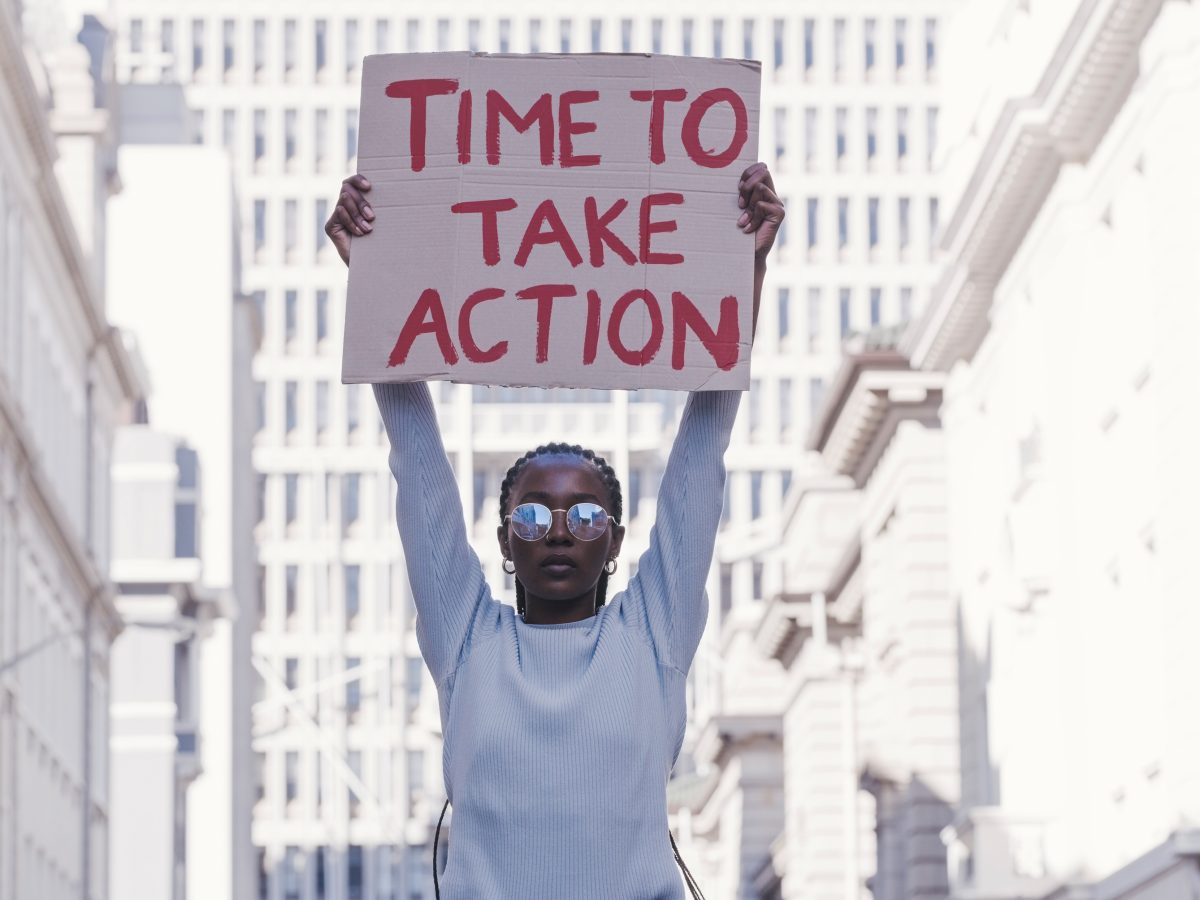
To say that things are bad right now is an understatement. Barely six months into Trump 2.0, the country has already seen the rapid erosion of institutions, political norms, and constitutional rights—protections that everyone, citizen or not, is supposed to be guaranteed in the United States of America. ICE is back on our streets, taking loved ones into detention centers with little explanation and no clear end. Rights for minorities, LGBTQ+ people, and women are being stripped away under the guise of eliminating “DEI policies.” The GOP-led “Big Ugly Bill,” as one lawmaker calls it, threatens the healthcare and food security of millions of vulnerable Americans.
There is resistance to the Trump regime. The June 14 “No Kings” protest, held across multiple major cities, drew nearly six million people, making it one of the largest single-day protests in American history. Still, there’s a noticeable shift this time around: Black women are not at the forefront of these mass demonstrations. That doesn’t mean they’re silent. Instead, many are choosing to dig in locally, fortifying, organizing, and protecting their communities at the state and neighborhood level.
Black women have long been the first line of defense against harmful federal policies—often the lone voices pushing back against legislation targeting minorities, the poor, and the marginalized. They’re the ones holding the line, protecting what remains, and reimagining what could be.
“[Black women] are the moral compass and architects of transformation and politics, especially at the state level,” Massachusetts State Senator Liz Miranda told Girls United. Miranda, who represents parts of Boston’s Suffolk County 2nd District, said the Massachusetts Black and Latino caucuses are unified in their opposition to the Trump administration. In April, she launched RESPONSE 2025—an initiative to examine how the state can shield its residents from harmful federal actions. The Massachusetts legislature has also partnered with groups like the Lawyers Committee for Civil Rights to train and inform citizens about their rights under this new political reality.
Massachusetts is one of several states mobilizing against this wave of federal overreach. Shortly after the 2024 election, in anticipation of sweeping bills like “The Big Beautiful Bill” that proposes the largest cuts in history to Medicaid and SNAP, national organizations like the State Innovation Exchange (SiX) began preparing state legislators to push back. Their goal: protect the most vulnerable, especially in red states.
“State legislators are on the ground and in the community. They see firsthand the impact these cuts would have,” said Jennifer Driver, Senior Director of Reproductive Rights at SiX. In places like New York and California, there’s not just resistance from lawmakers—there’s a groundswell within Black communities, too.
“I’m so thankful in California to have incredible organizations like the Black Women’s Collective and Black Women for Organized Political Action, who are making sure Black women’s experiences are front and center,” said California State Assembly Member Mia Bonta. She represents Oakland, home to the Black Panther Party and Black Lives Matter. “We are calling upon all of our resources right now. We have an exponential ability to preserve and protect not only our communities, but to stand up for so many others,” she added.
Even in states traditionally seen as liberal, Black women lawmakers are preparing for the ripple effects of these massive federal cuts. But the hardest hit will be Black communities in the South, especially rural areas.
“The folks that are going to bear the brunt of this will be Black communities, of course,” said Driver. “Especially in the South, in rural areas. The impact of these cuts will be devastating.”
In red states like Florida, where Democrats hold less power in the legislature, the strategy is different—but no less urgent. “We shifted how we were talking about things,” said State Representative Fentrice Driskell, Minority Leader of the Florida House of Representatives. “We’re going to have to lean on our local partners more than ever, demand transparency, and hold our opposition accountable.”
Driskell describes herself as the “emotional center” of her caucus. While she’s proud of the unity and small victories they’ve secured, she doesn’t sugarcoat the emotional weight of doing this work as a Black woman in a Republican-dominated legislature. “Politics is really heavy right now, and I want people to know that their leaders feel it too,” she said. “I definitely have to lean on other Black women leaders. We’re in a collective pain.”
It’s a hard, harrowing time in America. And it’s easy to feel hopeless. For the 92% of Black women who voted for Vice President Kamala Harris in the 2024 election, this reality is a betrayal. Once again, we find ourselves fighting for a country that rarely fights for us. Still, we persist.
“We’ve been here before,” said Senator Miranda. “Maybe not the same horrors, but the women in the 60s, the women during Reconstruction, during Jim Crow, during slavery—they all endured so that we can fight back. I encourage people to never stop fighting.”